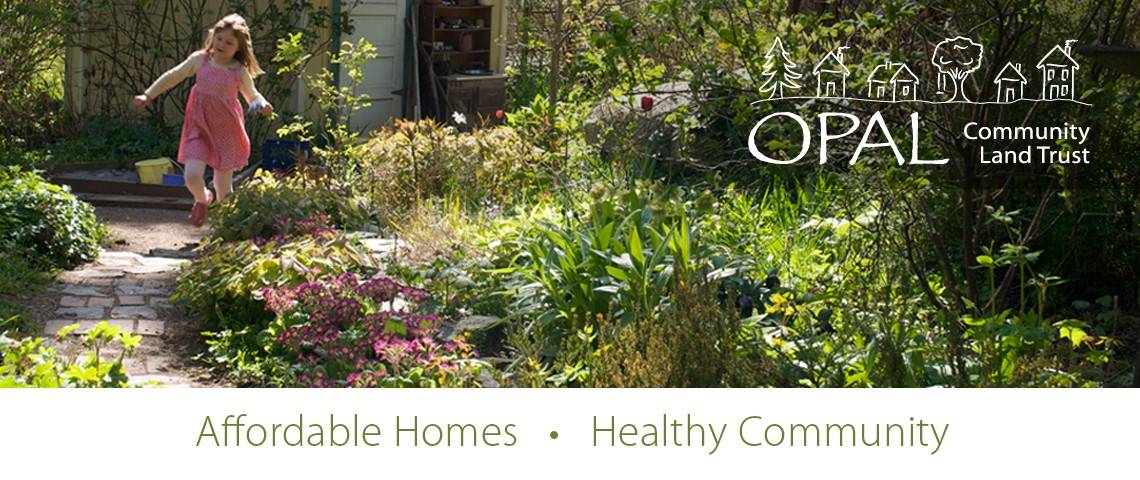OPAL Community Land Trust’s 45-unit rental project is inching its way closer to completion thanks to a major donation from the Orcas Island Community Foundation.
After an in-depth assessment and board discussion, the foundation chose to pledge $250,000 to the April’s Grove development on North Beach Road. The money is from a legacy gift left by the late Bob Henigson, and is contingent upon all other funds for the project being in place.
“This is 10 times bigger than anything we have done,” said OICF Director Hilary Canty. “We see housing as a critical need in this community. The OPAL project is shovel ready: they have the land and the plans. They just need the money.”
The land trust also needs to collect $450,000 in pledges and/or donations by Jan. 15, 2018 in order to make the deadline for its Federal Low Income Housing Tax Credit application. OPAL has budgeted a total of $1.3 million in funds from private donations, and if the state legislature does not adopt a capital budget, that amount will increase to $3.1 million. The tax credit program requires 50 percent of private donations to be raised or pledged by the application deadline. Donors can give now or have until 2021 to pay. Pledges can be made online at www.opalclt.org, by email opalclt@opalclt.org or by calling 360-376-3191.
If OPAL is approved for the tax credit program, it will pay for the bulk of the $12.35 million April’s Grove neighborhood. Without it, project development will be stalled. The tax credit program is the largest source of equity funding for rental housing in the nation, and OPAL’s Lavender Hollow was built in 1990 with it.
OPAL will know by mid-February 2018 if it is chosen for the tax credit program. If it is given the green light then additional fundraising will need to be done by the spring in order for construction to start in summer 2019. If OPAL is denied the federal funding, Land Trust Director Lisa Byers said it’s “back to the drawing board to reconfigure the financing and find another way forward.”
A legacy gift
Henigson, who passed away in 2014, left $1.25 million for OICF to use at its discretion – unlike an endowment, where the funds are invested and the income is used for something a donor specifies.
“We thought long and hard about the fact that Bob didn’t endow it. And he certainly could have,” said Canty. “Bob left it to us because he wanted us to use it wisely. We looked at his area of interests and where he had leadership.”
When assessing a financial partnership with OPAL, the community foundation looked at: consistency with the values of its 2025 vision; leverage; urgency (time-sensitivity) and readiness and ability to execute. OICF’s analysis describes the shortage of affordable housing on Orcas, and its negative impact on other aspects of the community in such areas as economic development, aging in place, education, culture and income inequality. Canty said the Orcas Community Resource Center has recently been able to help eight people moved out of tents or cars and into homes, but there is a handful of homeless islanders still waiting for housing to become available.
“This is something we can do right now to make a difference,” said Canty. “And it’s something Bob would have done.”
April’s Grove
The development will be on 3.8 acres on North Beach Road, across the street from Children’s House and the Funhouse Commons. Through community donations and a low interest loan, OPAL was able to purchase the land and 30 water utility connections for $1 million this past August.
The 45 rentals within 12 buildings are for households earning as low as $10,000 to as much as $80,000 per year. Rents will range from $300 to $1300 a month, with rent set at 30 percent of household income. There will be four studios; 11 one-bedrooms; 17 two-bedrooms; and 13 three-bedrooms. Household configurations will range from individuals to families with four or five children, and residents will include people who have been homeless, people with disabilities, and seniors. All of the town homes or flats will have entries that are flush to the ground and 14 of the units will be fully ADA accessible. The neighborhood will also include showers, a laundry facility and PO boxes for the general public.
Byers says she is “delighted” with the OICF pledge donation.
“There are real lives behind this problem. There are people living in tents. There are people who find a good job here and then can’t move to Orcas because there isn’t a place to live,” she said.
Byers said it’s been challenging to procure federal and state funding for a project of this scope.
“But ours is a legitimate need,” she said. “To have OICF step up in a whole new way as a collaborator is extraordinary. It really shifts the dynamic for us. We now have a partner to help make this happen.”




